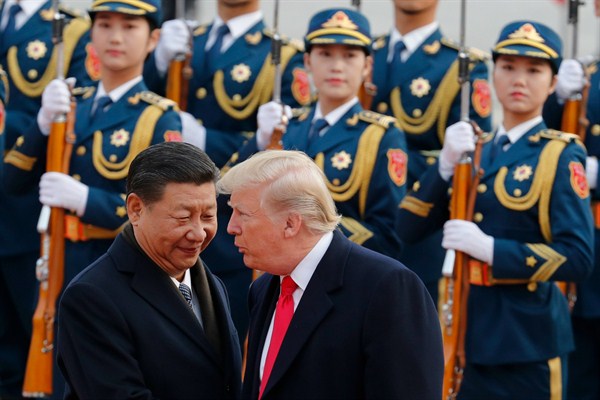Ever since Chinese President Xi Jinping failed to name an obvious successor to the Communist Party of China’s Politburo Standing Committee at its five-yearly congress last year, observers have suspected he might harbor ambitions for extending his grip on power beyond the two five-year terms allowed by the constitution. Yesterday, the party announced it would abolish those presidential term limits, clearing the way for Xi to continue in office indefinitely and suggesting that the era of collective leadership ushered in by Deng Xiaopeng is drawing to a close.
The move comes at a moment of significant soul-searching among China-watchers in the United States and seems to confirm their worst fears. In a nutshell, there is a gathering consensus that many of the assumptions of the past 20 years of Washington’s engagement with China are obsolete, and the hoped-for outcomes unlikely to materialize.
China’s integration into global trade networks has resulted in a more liberalized economy, but one with high barriers to entry for foreign firms that are getting higher. Its greater wealth has generated a sizable middle class, but not the expected popular mobilization for political responsiveness and accountability. Washington’s efforts to make space for China in the institutions of global governance have increased Beijing’s voice and influence, but have neither reassured the Chinese leadership of America’s benign intentions nor inspired China to embrace America’s preferred vision of international order.

